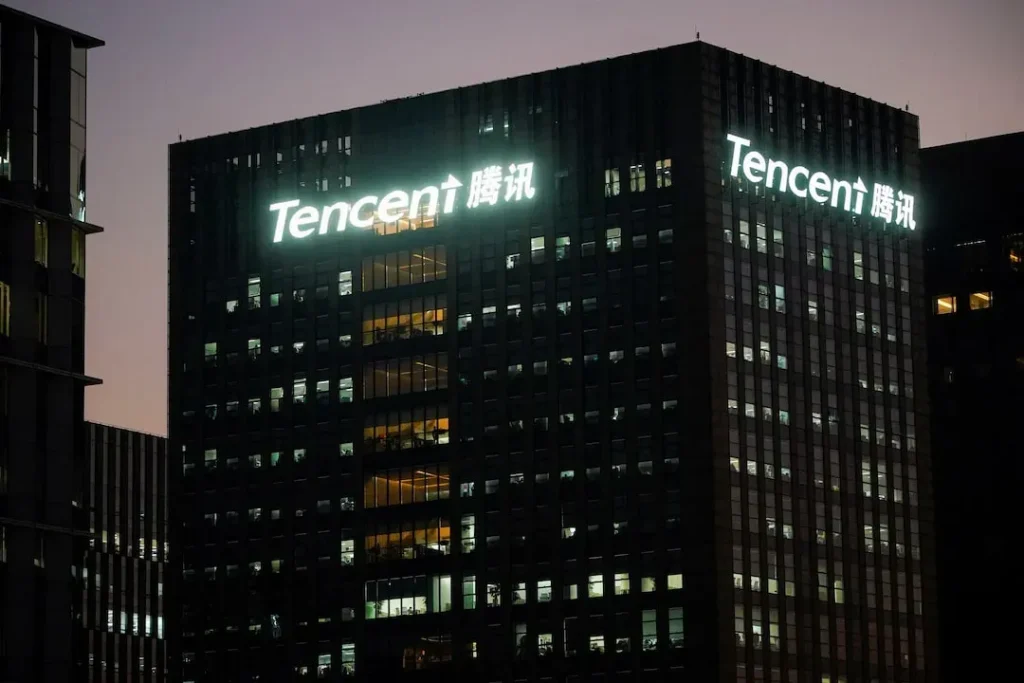Tencent is currently embroiled in a major copyright lawsuit filed by Sony, which alleges that the upcoming game, Light of Motiram, is essentially a “slavish clone” of the acclaimed Horizon series. This legal battle centers on claims of copyright and trademark infringement, with Sony arguing that Tencent’s depiction of a red-haired protagonist and tribal conflicts among robotic creatures closely mimics its own intellectual property. According to court filings, Sony seeks not only to halt the release of Light of Motiram but also demands acknowledgment of its ownership, emphasizing the risk of consumer confusion between the two titles. The broader implications of this Tencent copyright lawsuit raise questions about originality and creative rights within the gaming industry, drawing parallels to previous cases like the infamous Sony lawsuit against other developers. As the gaming community watches closely, the tension surrounding the Tencent gaming controversy continues to intensify, further igniting debates over the ethics of game development and intellectual property.
In an escalating intellectual property dispute, the legal confrontation involving Tencent and Sony spotlights critical issues regarding game originality and rights management. Dubbed the Tencent copyright lawsuit, this case revolves around the burgeoning video game Light of Motiram, which Sony claims bears striking resemblances to its well-established Horizon titles. The ongoing controversy evokes comparisons to other high-profile legal cases in the gaming realm, such as the Sony lawsuit concerning potential clones of its franchises. As the narrative unfolds, both companies face scrutiny not just from each other but also from gaming enthusiasts and industry experts who are keenly observing the developments. This situation serves as a keen reminder of the complexities that arise in the competitive landscape of video game development.
Overview of the Sony Copyright Lawsuit Against Tencent
In a significant legal development, Sony has initiated a copyright lawsuit against Tencent, focusing on its upcoming title, Light of Motiram. The lawsuit claims this game bears a striking resemblance to Sony’s beloved Horizon series. Sony describes its Horizon franchise as one of its most crucial intellectual properties, which adds substantial weight to its allegations. Given the potential impact on their gaming ecosystem, Sony is actively seeking a jury trial for what it categorizes as both copyright and trademark infringement.
The core of Sony’s argument is that Tencent’s game is a “slavish clone” of Horizon, particularly criticizing the character design and thematic similarities. As revealed in the court documents, Sony argues that the design of Light of Motiram’s red-haired female protagonist closely parallels that of Aloy, which could confuse consumers and lead them to mistakenly perceive it as a continuation of the Horizon storyline. This lawsuit is more than just about individual characters; it highlights a broader intellectual property dispute within the gaming industry.
The Impact of Copyright Disputes in the Gaming Industry
Copyright disputes, like the one between Sony and Tencent, have far-reaching ramifications in the gaming industry, influencing not only the companies involved but also the gaming community at large. Such legal battles can disrupt the production timeline of new titles and create uncertainty among consumers regarding what games to purchase. When major players like Sony stake their claims on intellectual property, it raises essential questions about creativity, originality, and the very future of game development.
Furthermore, the ongoing tensions showcased in this lawsuit underscore the precarious nature of intellectual property rights in a rapidly evolving digital landscape. As seen in similar cases, including some involving the Sony lawsuit over perceived clones of its unique titles, developers must navigate an intricate web of legal constraints while trying to innovate. Ultimately, these disputes emphasize the need for clearer definitions around copyright in gaming and the protection of creative properties.
Examining the Light of Motiram Controversy
The controversy surrounding Light of Motiram has sparked significant debate within the gaming community and beyond. Many fans and industry analysts have pointed out the blatant similarities to the Horizon franchise, especially following the release of various trailers. The gaming world reacted swiftly, with both casual players and critics labeling Light of Motiram a knock-off of the esteemed Horizon series. This label not only tarnishes Tencent’s reputation but also raises questions about its ethics in game development.
Incidents like this highlight a growing concern in the gaming industry about originality versus imitation. As Tencent faces accusations of infringing on Sony’s intellectual property, it becomes crucial for developers to strike a balance between drawing inspiration from existing franchises and cultivating their unique identities. The potential fallout from this controversy could influence how other companies approach game development and marketing strategies in the future.
Understanding Intellectual Property Rights in Gaming
Intellectual property rights play a pivotal role in the gaming industry, safeguarding creative works and ensuring that developers and publishers can benefit from their innovative efforts. The Sony lawsuit against Tencent is a prime example of how fiercely companies will protect their intellectual property. As gaming technology evolves, so too does the need for robust IP protections that reflect the complexities of digital content creation.
Without stringent intellectual property protections, developers might hesitate to create new games or iterate on existing ones, stifling creativity and innovation within the industry. The legal frameworks surrounding these rights are meant to create a fair playing field where all creators can thrive without the fear of infringement. In the case of Tencent and Sony, the outcome could have lasting implications on how intellectual property is defined and enforced within the gaming community.
The Role of Consumer Perception in Game Development
Consumer perception is a significant factor in the success or failure of any video game, and in the case of Light of Motiram, it has been deeply affected by the allegations from Sony. Gaming enthusiasts have voiced their concerns across various platforms, emphasizing that the game’s marketing appears to echo that of the Horizon series. This perception can drastically alter the course of development and marketing strategies, pushing companies to reconsider their approach to game design and branding.
Fans closely follow developments and manufacturer communications, and they often influence public opinion and sales. If the community perceives Light of Motiram as a copy, it could lead to decreased interest and sales, potentially damaging Tencent’s reputation in the long term. The pressure from consumers reinforces the necessity for originality in game development, compelling studios to create authentic experiences rather than imitative clones.
Future Implications of the Tencent Copyright Lawsuit
The copyright lawsuit filed by Sony against Tencent not only has immediate consequences for both companies but could also set important precedents for future cases in the gaming industry. Depending on the outcome, it might encourage other companies to take a stronger stance when defending their intellectual properties, potentially leading to a more vigilant approach towards protection of original content across the gaming landscape.
Moreover, this high-profile case could serve as a learning opportunity for smaller developers who navigate similar circumstances. If the courts favor Sony, it may reinforce the legal weight of originality in gaming, prompting developers to scrutinize their content more carefully. On the flip side, a ruling in favor of Tencent might embolden developers to take creative risks without constant fear of litigation, fostering a more vibrant atmosphere for game innovation.
Consumer Reactions to the Sony and Tencent Dispute
Consumer reactions to the Sony lawsuit against Tencent have varied widely, reflecting the complexities of brand loyalty and copyright in the gaming community. Many fans of the Horizon series have publicly denounced Tencent, arguing that Light of Motiram’s premise and visual elements are a direct infringement on the beloved franchise. This solidarity among gamers showcases how strong a connection players feel towards certain franchises and their protagonists.
Conversely, there are also voices advocating for Tencent, arguing that the boundaries of creativity are often blurred in the gaming industry. They suggest that being inspired by a successful franchise shouldn’t always be construed as theft; rather, it reflects the popularity and influence of the original work. This discourse emphasizes the need for awareness around the thin lines between homage, inspiration, and intellectual property infringement.
Legal Strategies in Copyright Infringement Cases
In navigating copyright infringement cases like the one between Sony and Tencent, legal strategies play a critical role. Sony’s decision to seek a jury trial signals a robust approach to enforcing its rights, aiming not just for damages but also for a clear message about the protection of intellectual property. The legal team’s preparation will likely involve demonstrating the striking similarities between both games, bolstered by consumer reactions and expert analysis.
On the other hand, Tencent will need to mount a compelling defense to counter these allegations, potentially arguing for a case of fair use or the transformative nature of its game design. This situation underscores the necessity for companies to have solid legal representation and strategies in place to safeguard against potential infringement claims, emphasizing the complexity and competitiveness of the gaming industry.
The Influence of Social Media on Gaming Controversies
In today’s digital age, social media plays a crucial role in shaping narratives around gaming controversies like the lawsuit between Sony and Tencent. The immediate sharing of opinions and reactions on platforms like Twitter, Reddit, and gaming forums can amplify public perception, influencing both consumer behavior and corporate responses. This was clearly evident as gamers and journalists dissected the similarities between Light of Motiram and Horizon, igniting discussions that transcended typical gaming news.
This social dialogue can significantly impact both companies’ reputations. Positive or negative consumer sentiments can sway potential buyers and deter or encourage further development with ongoing projects. Hence, companies are increasingly aware of how their marketing strategies and development choices are perceived online, and this case exemplifies the powerful intersection of social media and the gaming landscape.
Frequently Asked Questions
What is the Tencent copyright lawsuit filed by Sony about?
The Tencent copyright lawsuit involves Sony alleging that Tencent’s upcoming game, Light of Motiram, is a ‘slavish clone’ of Sony’s Horizon series. Sony claims that Light of Motiram infringes on its intellectual property by replicating key elements, including the main character, Aloy, and the game’s thematic and visual style.
How does the Light of Motiram game relate to the Horizon Zero Dawn clone controversy?
Light of Motiram has been characterized as a Horizon Zero Dawn clone due to its striking similarities in gameplay, character design, and setting. Sony’s lawsuit emphasizes that these similarities are likely to confuse consumers and misrepresent the Horizon franchise, thus feeding into the ongoing gaming controversy involving Tencent.
What are the main claims in Sony’s intellectual property dispute with Tencent?
In the copyright lawsuit, Sony claims that Tencent has engaged in copyright and trademark infringement by developing Light of Motiram without permission, which Sony argues is a blatant theft of its intellectual property. The lawsuit seeks to halt the release of the game to protect its valuable Horizon franchise.
What evidence does Sony provide in the Tencent lawsuit?
Sony presents evidence that Tencent’s Light of Motiram includes a similar protagonist and gameplay mechanics as seen in the Horizon series. Additionally, Sony references discussions where Tencent attempted to license Horizon’s intellectual property for their own game but was rejected, suggesting that Tencent’s actions are willfully infringing.
What could be the implications of the Tencent copyright lawsuit for the gaming industry?
The outcome of the Tencent copyright lawsuit could set a precedent for intellectual property rights in the gaming industry, particularly regarding how closely one game can mirror another. A ruling in favor of Sony could encourage stricter enforcement of copyright protections for video game developers.
How has the gaming community responded to the Tencent lawsuit?
The gaming community has largely echoed Sony’s claims, with many gamers and journalists noting the glaring similarities between Light of Motiram and the Horizon series. This widespread recognition has intensified the debate surrounding Tencent’s gaming practices and the broader implications of copying existing franchises.
What was Tencent’s response to Sony’s allegations regarding Light of Motiram?
As of now, Tencent has not publicly detailed its response to Sony’s allegations in the copyright lawsuit. However, it has been noted that the company rejected Sony’s demands to cease development on Light of Motiram after being informed of the similarities and potential infringement issues.
Will the Tencent copyright lawsuit affect the release date of Light of Motiram?
If the court rules in favor of Sony, the release of Light of Motiram could be significantly delayed or halted altogether. Sony is actively seeking to prevent what it describes as an imminent release that infringes upon its intellectual property rights.
| Key Points |
|---|
| Sony has filed a lawsuit against Tencent over copyright infringement regarding the game Light of Motiram, claiming it is a clone of the Horizon series. |
| Sony alleges that Light of Motiram misappropriates main character Aloy and aims to confuse gamers into thinking it’s part of the Horizon franchise. |
| The lawsuit seeks a jury trial to halt the release of Light of Motiram. |
| Tencent had approached Sony with a partnership proposal to develop a Horizon game, which Sony rejected. |
| After Sony rejected the proposal, Tencent continued the secret development of Light of Motiram, leading to the lawsuit. |
| Both gaming communities and journalists have pointed out the striking similarities between Light of Motiram and the Horizon series. |
| Sony states that they clearly communicated their objections to Tencent, who still proceeded with their game’s marketing. |
Summary
The Tencent copyright lawsuit epitomizes the ongoing battle in the gaming industry over intellectual property rights. Sony’s claim that Tencent’s Light of Motiram is a ‘slavish clone’ of its Horizon series highlights the seriousness of protecting creative assets in an era where originality is paramount. As developers and companies navigate partnerships and competition, it is essential for them to respect intellectual property to avoid legal disputes like this one.



